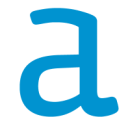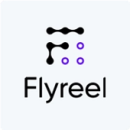Identities are inherently intersectional.
On an individual level, social identities like race, gender, sexual orientation, religion and social class overlap to create complex experiences and unique challenges.
As Tiffany Apczynski, VP of corporate social responsibility at Alteryx said, these identities are inseparable, which is why an intersectional approach to diversity is the only approach an organization can take. At her employer, there is often partnership between different employee resource groups, like a recent panel on allyship between their interfaith community, BIPOC+, and AlterQ (their LGBTQ+ ERG).
“Bringing these three ERGs together not only demonstrates solidarity, but it also powerfully highlights intersectionality,” Apczynski said.
In her experience, broad participation in these types of events — they’ve had some discussions featuring 1,500 employees, including the CEO — brought varied and honest feedback, leading to more informed decisions around DEI policies.
“We shared the opportunity for honest transparency, and it set the tone for what we must do going forward,” Apczynski added.
Fostering equality requires constant learning and multiple avenues for receiving employee feedback. The following three local companies are embracing their employees’ whole selves with open discussions and holistic change.
One look at Alteryx’s benefits makes it clear how much value they place on employee safety and inclusivity. Their holistic focus on employee wellbeing includes open discussion between team members to foster greater inclusivity.
How does your company approach intersectionality in the workplace, and how does that help shape your broader DEI initiatives?
At Alteryx, we believe that we all have more than one identity that makes up the full picture of who we are. These identities are inseparable, which is why an intersectional approach to diversity is the only approach an organization can take.
A recent example of this approach in action at Alteryx is our efforts to break down Employee Resource Groups (ERGs). We currently have eight ERGs that offer employees a space to be vulnerable, share resources and drive change within our company. Many times, these individual ERGs and their characteristics overlap.
Over the summer, Alter.Q hosted a panel on allyship, partnering with three intersecting ERGs: our interfaith community, BIPOC+, and AlterQ (our LGBTQ+ ERG). The goal was to not only show unity and commonality, but also to show the need for allyship. We have many LGBTQ+ employees and allies who find their faith extremely important to their identity. However, there can be a very real and painful struggle to be LGBTQ+ and still be accepted by some forms of religion. Bringing these three ERGs together not only demonstrates solidarity, but it also powerfully highlights intersectionality.
Listening circles illuminated the many identities our employees have, and the difficulties of feeling like you are the only one in a room.’’
What has been the most impactful action your company has taken to create a more inclusive and equitable work environment for all employees, and why?
We recently hosted a series of six listening circles, which was a catalyst for change at our company. These circles provided an open forum for everyone to discuss our approach to diversity, equity and inclusion. More than 1,500 employees (nearly the entire company) joined these circles, including our CEO.
Circle discussions included what it means to be Black in America, or Asian in America, or an LGBTQ+ person who belongs to an organized religion. There was hardly consensus during these circles, and thanks to the variety of input, the conversations were productive.
Listening circles illuminated the many identities our employees have, and the difficulties of feeling like you are the only one in a room, whether it’s visible or not. We shared the opportunity for honest transparency, and it set the tone for what we must do going forward.
What role do your employees play in driving DEI efforts? What have you done to ensure even the most marginalized voices on your team are represented, heard, valued and respected?
In addition to hosting listening circles, we also leverage our employee-driven diversity council, Alter.Us, to solicit anonymous employee feedback as it pertains specifically to DEI on an ongoing basis. We also recently embedded a series of questions exclusively focused on DEI in our most recent engagement survey.
There’s more to come. This year, we will be diving deeper and increasing transparency into our data, launching new partnerships, and more. Equality is a journey, and I’m confident that we will make great steps forward this year.
With a product that centers around meaningful employee recognition, Bonusly is already taking center stage when it comes to making the workplace a positive, inclusive space. Their team develops their DEI initiatives by embracing feedback, accountability and active change.
How does your company approach intersectionality in the workplace, and how does that help shape your broader DEI initiatives?
When it comes to shaping broader DEI initiatives, we know that having input from employees around different perspectives is vital. We currently have a strong DEI advisory group that acknowledges the complexity of intersectional identities and works to educate on identity overlap, not just the border categories of identity. This group acts as a sounding board to advocate for an inclusive workplace and foster a culture that celebrates diversity, encouraging new perspectives to improve how we work together. Our current efforts include information-sharing to educate each other, reviewing and iterating our processes, and being receptive to feedback and first-hand experiences.
We don’t shy away from talking about what’s going on, we apologize when we haven’t done something right, and we work to fix it.’’
What has been the most impactful action your company has taken to create a more inclusive and equitable work environment for all employees, and why?
We don’t shy away from talking about what’s going on, we apologize when we haven’t done something right, and we work to fix it. As an example, employees who were interviewing candidates brought up issues with the process that they identified, particularly bias creep. Thanks to this information, the entire process was reworked with the goal of reducing bias and creating an evidenced-based interviewing process. A lot of work is done up front to prepare and make sure we’re clear about what’s absolutely necessary for a role, and how to assess for that in the interview process. At the same time, our DEI advisory group realized that the interview should also identify new-hires that value a robust DEI process, so a series of questions were created so that we could assess for understanding and willingness to learn in this space. Our expectation is that people at higher levels and in management roles need to have more than just a basic understanding of DEI, and show ways in which they combat bias. We actively seek to hire people who want to support their team, organization and company and help create a more equitable workplace.
What role do your employees play in driving DEI efforts? What have you done to ensure even the most marginalized voices on your team are represented, heard, valued and respected?
Data shows diversity in the workplace can make a company more successful. That means every employee plays a role in our DEI efforts, and can influence and impact what DEI looks like at Bonusly and in our product. Part of that is ensuring that every voice is heard and respected — the key to this is creating trust and psychological safety. At Bonusly we give people different avenues to provide feedback, and respond with active listening and action that moves us in the direction to ensure marginalized voices are heard and respected. We also couple this with our own product. Neuroscience tells us that a threat response will impact our brains more significantly than a reward response. We use our recognition product to amplify positive feedback and that reward response, which can increase trust and psychological safety so that we’re able to give and receive more critical feedback more effectively, frequently and create space for more dialogues and discussions.
Flyreel is using AI to support underwriters and policyholders through the inspection process, documenting interior and exterior data such as property risks and hazardous materials. With an eye for risk management, their team is well-versed in a holistic approach; their DEI approach turns feedback from all employees into new initiatives and measurable change.
How does your company approach intersectionality in the workplace, and how does that help shape your broader DEI initiatives?
The best way to support employees with intersecting identities is to give them the space to voice their needs, and truly listen with the intent to take action. As a startup, we are constantly looking for new ways to improve and boldly innovate — including our approach to employee support, as well as providing a space for every employee to simply be themselves. We have Slack channels to celebrate everyone living their lives outside of the workplace, and encourage new folks to join in to express their community involvement, marathon awards, Pride celebrations, or anything else! One of our main hiring objectives is to ensure that we are creating a diverse workforce in every department. To meet this goal, we work with top recruiters to focus on creating teams that are not only incredibly talented, but diverse, and continue re-evaluating our candidate sources to ensure that we find the right talent.
Our leaders not only embrace feedback, but also take action based on the feedback given.’’
What has been the most impactful action your company has taken to create a more inclusive and equitable work environment for all employees, and why?
We have created a workplace environment where everyone can not only be themselves, but also voice their opinion about any initiative, whether cultural or customer-facing. One of the best things about working at Flyreel is the way our leaders not only embrace feedback, but also take action based on the feedback given. For example, last year we received feedback that our engineering team was not very diverse — since then, we have made it a point to not just attend, but sponsor the WomenHack Denver event. We even found an amazing product engineer from the event!
What role do your employees play in driving DEI efforts? What have you done to ensure even the most marginalized voices on your team are represented, heard, valued and respected?
We recently created a culture and communication committee to give the employees a voice in the cultural process, which has led to several equitable improvements for all employees across the organization. In this committee, we have balanced gender and racial representation from every part of the organization; to go beyond their individual voices, we also encourage every employee to join in on weekly discussions. At Flyreel, we understand that to create a truly inclusive workspace, it is important for us to give each team member the space to voice their needs and opinions, in both public and private forums.










